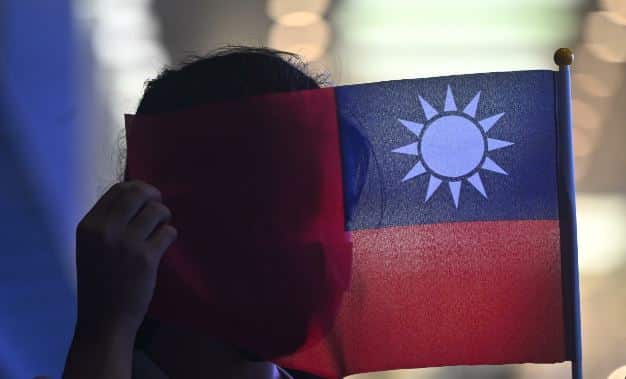
Nowadays, political dogma trampling economic pragmatism drives European government action as shown by the imposition of Green Party ideology on Germany’s energy policy risking the deindustrialization of Europe’s leading economy.
Another case is the conflict started by the Lithuanian government against China, illustrated by the Baltic country’s decision last year to open a “Taiwanese representative office”, an event that prompted the Chinese government to downgrade state relations, an extraordinary episode on the 32 year-long diplomatic history between both countries.
As is known, the Chinese government firmly believes that having a “Taiwanese” representative office in a foreign country can be construed as giving sovereign acknowledgement to the Taipei government against the one-China policy accepted by most of the international community. Only a few countries – most of them small Central American, Caribbean, and Micronesian states – have diplomatic relations with Taipei and certainly no European state has given such recognition. The European Union (EU) hosts a liaison bureau with the name of Taipei instead of Taiwan, in line with international consensus. When Lithuania established diplomatic relations with China in 1991 it undertook not to establish official relations or engage in official contacts with Taiwan, effectively accepting the one-China policy.
Lithuania’s recent decision risks a conflict with the world’s largest economy and has no commercial justification. During the 2004-2020 period Lithuania’s exports to China were €1.6 billion, whereas to Taiwan only 10 percent of this value, and their annual growth has exceeded Taiwan’s. During this term, Lithuanian imports from China were €13.3 billion against €1 billion from Taiwan and grew at twice the Taiwanese rate. While China is still not an important export partner for Lithuania, as the latter’s 2021 exports to China were less than 1 percent of total, imports from China are significant and in 2021 were 9.2 percent of total. Lithuania-Chinese business partnerships during 2004-2020 expanded considerably as the number of Lithuanian enterprises involved in international trade with China grew by 95 percent (exporters) and 62 percent (importers). These healthy trends are now at risk: as of July, Lithuania’s average monthly exports to China dropped 76 percent from its 2020 peak, representing a €214 million annualized loss for 2022 overwhelming the paltry €10 million increase of exports to Taiwan during the same period.
Lithuania did not need to antagonize China to continue and expand its economic relationships with both China and Taiwan as is the approach of most countries that have chosen economics over politics. Despite recent Taiwanese promises for foreign direct investment and further import commitments, Lithuania’s behaviour cannot be explained by commercial necessity.
Since its independence in 1991, Lithuania has mostly been ruled by governments unable to strike a balance between the country’s security priorities (mainly concerning Russia) and their people’s interests considering the opportunities offered by the compelling geographical proximity to its big Eastern neighbour. The Lithuanian political leadership’s approach in international relations has been defined by overtly confrontation with Russia – expressed by the attempted blockade of goods traffic between Russia mainland and Kaliningrad, an event that risked a dangerous escalation on the NATO-Russia conflict related to Ukraine – and a willingness, against the country’s best interests, to be instrumental of US geopolitical designs in the region and to cave in to US wishes, expecting that acquiescence and subservience will ultimately gain Western sympathy and help ensuring security support.
Lithuania’s showdown with China seems to be an extension of these policies to a geography well beyond its rational area of concern. Trying to justify its approach, the Lithuanian government has even said that “economic ties with democratic countries are more sustainable”, an audacious statement that defies commercial sense as proven by decades of West-Soviet Union trade during the Cold War. Interestingly, the EU has expressed solidarity and even committed to a €130 million assistance package to minimize the impact of China’s reaction but has not followed a confrontational pattern as obviously it is not prepared to risk a relationship with China worth over €1 trillion in annual trade and foreign direct investment.
The Lithuanian President’s statement that the Taiwan office decision was “a mistake” is an isolated exception to his government’s recurrent approach towards China. Sadly, matters have worsened as Lithuanian officials recently visited Taiwan following Nancy Pelosi’s trip to the island, causing the Chinese government to suspend exchange and cooperation on several fields.
Lithuania’s actions matter to the world because the country seats on the most dangerous fault line between NATO and Russia. Lithuania’s delay in opening the controversial office and suggestions that it will have no diplomatic status and bear a non-confrontational name may signal a tone down. Nevertheless, past behaviour of the small Baltic nation does not bode well on the course of future decisions, and this can only be detrimental, if not catastrophic.
Oscar Silva-Valladares is a former investment banker that has lived and worked in North and Latin America, Western & Eastern Europe, Saudi Arabia, Japan, the Philippines, and Western Africa. He currently provides strategic consulting advisory on financial matters across emerging markets.

